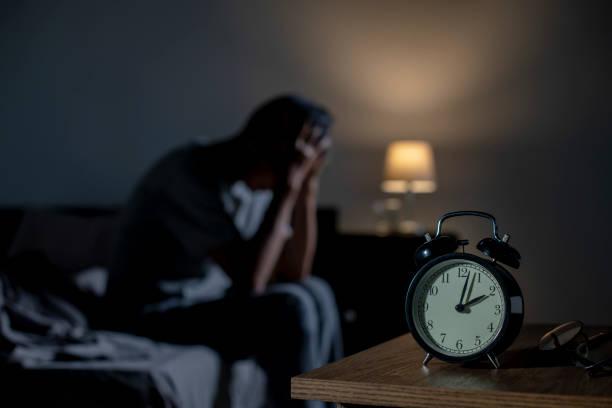Now Reading: Is Your Insomnia Linked to Lifestyle Choices? Practical Tips for Better Sleep Hygiene
-
01
Is Your Insomnia Linked to Lifestyle Choices? Practical Tips for Better Sleep Hygiene

Is Your Insomnia Linked to Lifestyle Choices? Practical Tips for Better Sleep Hygiene
Sleep hygiene is exactly the practice of proper behaviours and conditions that can be beneficial to have a good night’s sleep. Yes, it is another way of how some people prepare their bodies and bedrooms so as to allow sleep come easily. Before we elaborate on sleep hygiene and how you can enhance it let me describe what it actually is.
What is Sleep Hygiene?
Otherwise, sleep hygiene can be defined as behaviours that allow a person to get a quality and restful sleep. This entails activities you undertake, time you go to bed, and the surrounding of the bedroom you sleep in. If you can find the means to master these three factors then, you will be able to condition your body for a good sleep at night.
Setting Your Sleep Schedule
A consistent sleep schedule is among the best known elements of sleep hygiene or what is also known as sleep schedule regulation. Here’s why:
- Fixed Wake-Up Time:
In an attempt to establish a routine, it is recommended that one be woken up at the same time irrespective of the day of the week. This assist the body to builds up some sort of a cycle and as a result enables one to have a natural way of getting to sleep and also wakening up.
- Prioritize Sleep:
Establish the habit of considering sleep as a must-have by determining your sleep duration by setting the right time that one needs to be in bed before sleeping. As for diet, try to limit yourself to seven or eight hours of sleep per day.
- Gradual Adjustments:
That is why if you feel that you must continue changing your sleep times, do it progressively. Try to shift your sleeping times by an hour or two rather than moving in small increments so as not to totally shift the body’s clock.
- Avoid Long Naps:
Although there is merit in taking a nap, one should not sleep especially after midday and should not be for long. Short naps may also disrupt your night time sleep if you take them in the afternoon.
Optimizing Your Bedroom Environment
Everything about your bedroom can influence your sleep quality, which means your sleep hygiene. Here are some tips to make your bedroom sleep-friendly:
- Comfortable Mattress and Pillow:
Select a mattress and pillow that will be adequately comfortable to you, and you will be able to get a good night’s sleep. This is very important with a view of avoiding any kind of pain at night when sleeping.
- Cool and Dark Room:
Maintain the bedroom temperature cool; best temperature should be close to 65 degrees and avoid the room from having light exposure. To avoid light the options are to have heavy curtains or it is possible to have an eye mask.
- Quiet Room:
Use earplugs or a white noise machine to keep your bedroom quiet. Noise can disrupt your sleep.
- Calming Scents:
Light scents like lavender can help create a relaxing atmosphere.
Creating a Relaxing Bedtime Routine
A bedtime routine helps signal to your body that it’s time to sleep. Here’s how you can create one:
Relaxing Activities: Engage in relaxing activities like reading, taking a warm bath, or practicing gentle stretches about an hour before bed.
Avoid Stimulating Activities: Avoid activities that are too stimulating, such as watching TV, using electronic devices, or having intense conversations.
Consistency: Keep your bedtime routine consistent to help your body recognize when it’s time to sleep.
Lifestyle Choices and Sleep Hygiene
Your lifestyle choices can significantly impact your sleep hygiene. Here are some key points to consider:
Avoid Caffeine and Nicotine: Avoid consuming caffeine and nicotine for at least 4-6 hours before bedtime. These substances can interfere with your ability to fall asleep.
Limit Alcohol: Avoid alcohol for at least 4-6 hours before bedtime. While it may help you fall asleep initially, it can disrupt the quality of your sleep.
Regular Exercise: Regular exercise is beneficial for sleep, but avoid strenuous exercise in the 4 hours before bedtime.
Healthy Eating: Eat a balanced diet and avoid heavy meals close to bedtime. A healthy diet can support better sleep.
Final Words
Improving your sleep hygiene is a step-by-step process that involves making small changes to your daily routines and bedroom environment. By setting a consistent sleep schedule, optimizing your bedroom, creating a relaxing bedtime routine, and making healthy lifestyle choices, you can significantly improve the quality of your sleep.





















